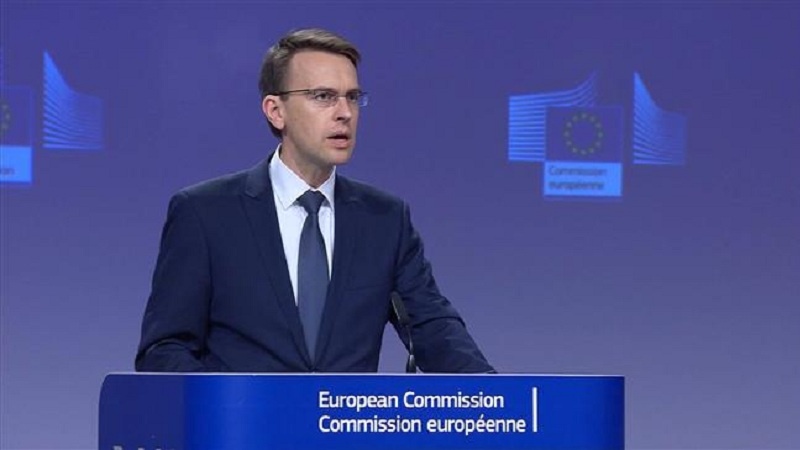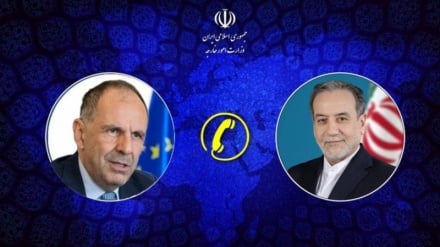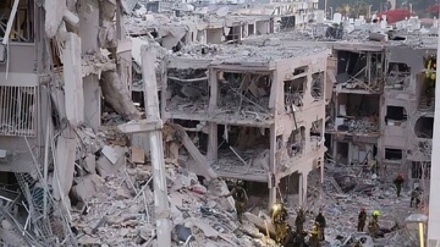EU warns against efforts to undermine nuclear talks after Natanz incident
The European Union has warned against attempts to derail talks aimed at reviving a landmark 2015 nuclear deal signed between Iran and major world powers after a terrorist attack by Israel on Iran's Natanz nuclear site.
EU Spokesman Peter Stano said on Monday that the Natanz incident "could have been an act of sabotage" but stopped short of announcing who was responsible.
"We reject any attempts to undermine or weaken diplomatic efforts on the nuclear agreement," he said, referring to the deal, officially known as the Joint Comprehensive Plan of Action (JCPOA).
"We still need to clarify the facts in detail as quickly as possible," he added.
According to Press TV, Spokesman for the Atomic Energy Organization of Iran (AEOI) Behrouz Kamalvandi said on Sunday that an incident took place at the electricity distribution network of Shahid Mostafa Ahmadi Roshan nuclear facility in Natanz, which is an uranium enrichment center located in the city of the same name in Iran’s central Province of Isfahan.
Later in the day, AEOI Head Ali Akbar Salehi slammed the act of sabotage against the country’s nuclear site in Natanz, saying the international community and the International Atomic Energy Agency (IAEA) must deal with such “nuclear terrorism” that targets Iran’s facilities.
Speaking to reporters on Monday, Iran’s Foreign Ministry Spokesman Sa'eed Khatibzadeh said, "The appalling incident that took place in Natanz was the work of the Zionist regime (Israel), given what it was repeatedly saying before and what is still being heard from various sources these days."
The act of sabotage came a day after Iran began feeding gas to cascades of new, advanced centrifuges and unveiled 133 achievements to mark its National Nuclear Technology Day and show the peaceful nature of its nuclear program.
Four days of talks between representatives of Iran and the remaining parties to the JCPOA -- Britain, France, Germany, China and Russia -- ended in the Austrian capital of Vienna on Friday.
The sides discussed all possible ways to revitalize the JCPOA after former US President Donald Trump unilaterally withdrew from the deal in 2018 and unleashed what his team called a “maximum pressure" campaign against Iran with the stated objective of forcing the country to negotiate “a better agreement.”
The US also sent a delegation to Vienna, but Iran rejected holding direct or indirect talks with the US side.
The new US administration, under President Joe Biden, has spoken of a willingness to return to the nuclear agreement, but in practice, it has been sticking to Trump’s “maximum pressure” campaign and conditioned the move to Tehran’s full compliance.
Tehran says Washington is the side which abandoned the JCPOA and thus, it has to take the first step to unconditionally remove all its sanctions on Iran in a verifiable manner, given its long record of not playing by the rules.
ME



